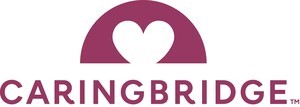Forget the Flowers, Help with Communications Eight Times More Preferred When Facing a Significant Health Challenge
CaringBridge survey reveals patients dealing with a health journey want online support and encouragement
EAGAN, Minn., Nov. 2, 2010 /PRNewswire/ -- Think you should bring chocolate and flowers next time you're going to the hospital? Think again! Americans much prefer the power of staying positive and the support of family and friends to material gifts like flowers or candy when facing a significant health challenge, according to a new study announced today by CaringBridge, a nonprofit provider of free websites that connect family and friends.
The study, conducted for CaringBridge by Ipsos Public Affairs in September, polled more than 1,000 American adults on how they would prefer to be supported during serious health events such as cancer, premature birth or injury, subsequent care and recovery.
When asked about the gift they would most appreciate receiving while on their own significant health journey, nearly three out of five (58 percent) Americans ranked help with staying connected and updating other family and friends among their top two choices, while more than half (52 percent) selected household help, such as preparing meals, cooking or managing life chores. Other ways Americans want support when they are ill:
- Help getting their legal affairs in order (41 percent)
- Items to help pass time such as books and magazines (24 percent)
- Personal mementos or pictures (17 percent)
- Gifts such as flowers or candy (7 percent)
Stay Positive, Stay Connected
Aside from excellent medical care, 35 percent of Americans say keeping a positive mental attitude is the most beneficial way to face a significant health challenge. Roughly a quarter (27 percent) feel that having emotional support and encouragement from family and friends or personal prayer or faith (23 percent) would be most beneficial to them if they were dealing with a health problem.
"When facing the diagnosis of cancer or other serious health issues, the burden of communicating with family, co-workers and friends can be so high," said CaringBridge CEO Sona Mehring, who founded the nonprofit after creating a website to share information for a friend who experienced a premature birth and personal health emergency. "However, connecting with your family and friends can lift up your spirits and help you on your health journey."
Patients Using Technology
Patients who once connected primarily through phone calls and face-to-face communications are now using electronic methods to share information about treatment, receive help in coping and build personal networks of family members, friends and supporters. For example, two thirds (67 percent) of the adults polled who have shared updates about a serious health issue have done so using some form of modern technology (email, text message, personal or private health website, blog or microblog).
In addition to providing an easier way to communicate with loved ones when facing a medical crisis, CaringBridge users are able to set up personalized access settings, which is a particularly important factor when sharing private health information online. Two out of three respondents (67 percent) in the CaringBridge poll cite knowing that a personal website is private and secure as the most important feature.
"You really find out the depth of compassion that people have when there's a crisis. The word goes out and your communities enlist their communities and they all connect to provide a web of support," said one CaringBridge website user about connecting with family and friends after his daughter suffered a tragic car accident, just one of many personal stories shared on CaringBridge.org.
"The Internet not only helps bridge communications between patients and their personal networks, but aids in the recovery process as well," added Mehring. "Nearly 90 percent of CaringBridge users say being able to share and connect with their family and friends through their website positively impacted their healing process."
CaringBridge is one of the most widely used personal health social network sites. In the last twelve months alone, 42 million people have connected through CaringBridge, or more than one in 10 people in the U.S., and more than 1 billion visits have been made to CaringBridge websites since the company was founded in 1997.
What Not to Say
Although it may seem like common sense, "Told you so," "I know someone who died of that same health condition," and "How did this happen" top the list of things you should not say when someone tells you they have been diagnosed with a serious medical condition or illness. According to the survey, patients most like to hear "I love you," "I'm here for you," and "Is there anything I can do?" from friends and family.
Other phrases are not so clear-cut. Surprisingly enough – patients are split on whether they would love hearing "Everything is going to be okay" or hate hearing it: 21 percent of respondents mark this comment as one they would most like to hear and 21 percent say they would least like to hear it. Similar results were discovered with the comments, "I know how you're feeling," and "You're in my prayers."
About CaringBridge
CaringBridge provides free websites that connect people experiencing a significant health challenge to family and friends. Its mission is to amplify the love, hope and compassion in the world, making each health journey easier. The free service is made possible by the generosity of donors. Find more information at www.CaringBridge.org.
About the Survey
This survey was conducted September 17 – 19, 2010 by Ipsos Public Affairs for CaringBridge. It polled a nationally representative sample of 1,011 randomly-selected adults aged 18 and over residing in the U.S. With a sample of this size, the results are considered accurate within +3.7 percentage points, 19 times out of 20, of what they would have been had the entire population of adults in the U.S. been polled.
SOURCE CaringBridge
WANT YOUR COMPANY'S NEWS FEATURED ON PRNEWSWIRE.COM?
Newsrooms &
Influencers
Digital Media
Outlets
Journalists
Opted In





Share this article